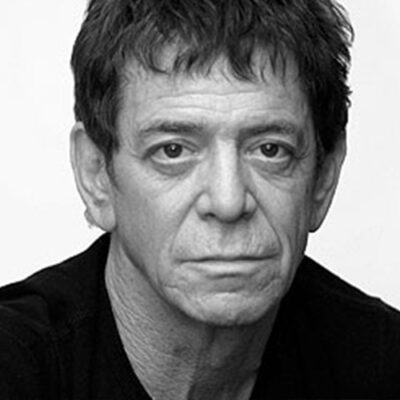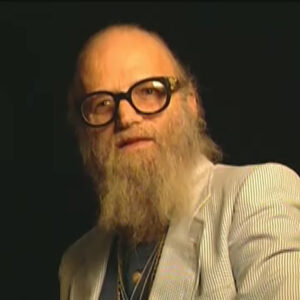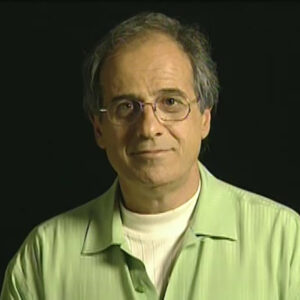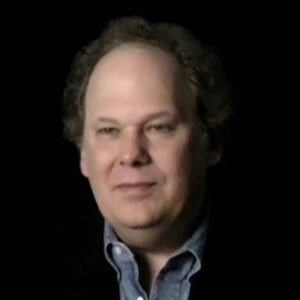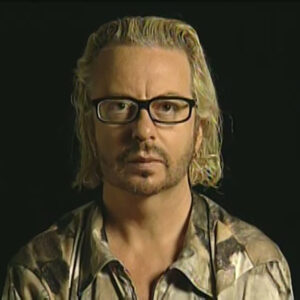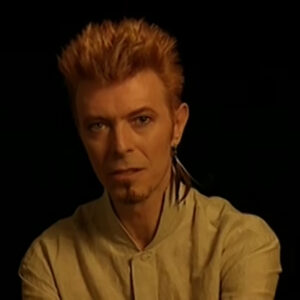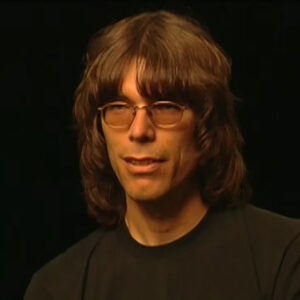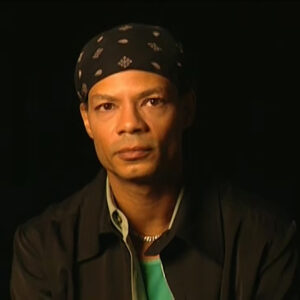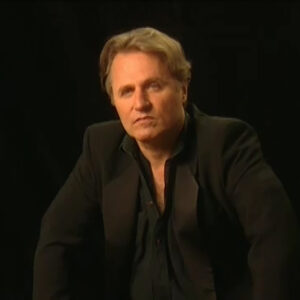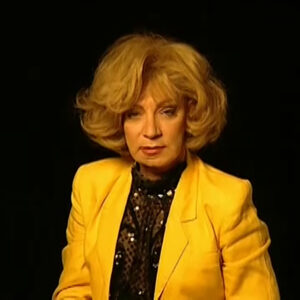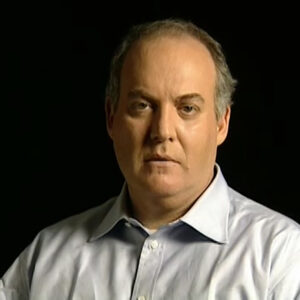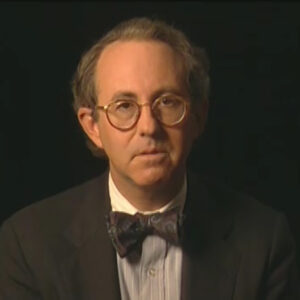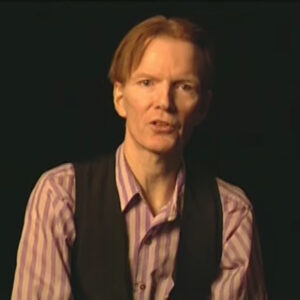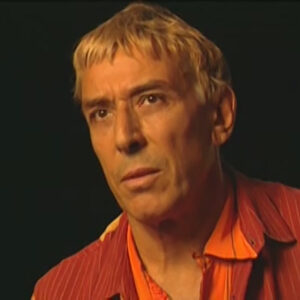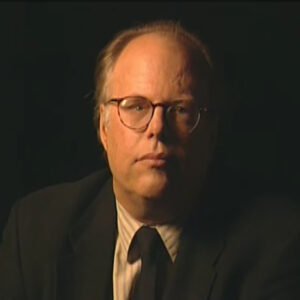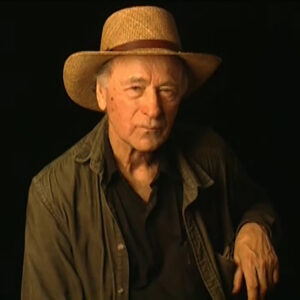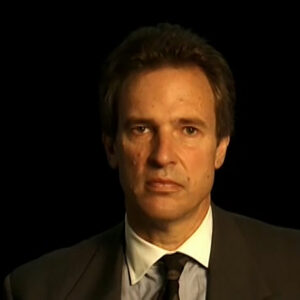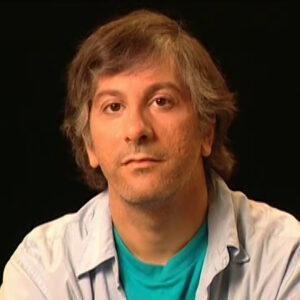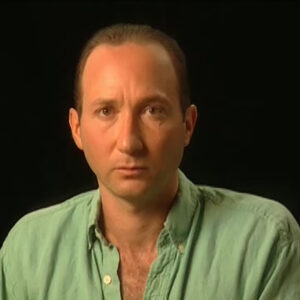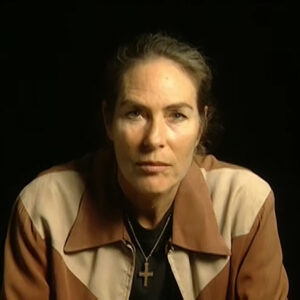Speaker Years of difficult use is difficult for me to pin down. I lived on the Lower East Side between Avenue B, an Avenue C on 6th Street, and there was a group of people, including the Velvet Underground. But there were some other ancillary people hangers out who lived on First Street. And basically that was the place of Tom Dargah. He was the only guy who had any money. This is like really Henry Miller stuff. We all hung out with him because he had a surplus food program. I don’t know how he got there, but through his own ingenuity. And I can remember very, very distinctly, Lou and and Sterling and Moe Tucker trying to make pancakes out of the surplus starch that they had had no money at all. And so they had big tubs of raisins and big tubs of stuff. And the other thing about that place, we were constantly getting robbed, like getting robbed there on a weekly basis. I mean, you just always walk in and somebody be going out the window on the fire escape with something that you had. And I remember very distinctly coming up to their staircase one time. And there was there was an LP record laying out in front of their door with a big sneaker print on it. I said, oh, this is not. That’s a bad sign. And it was an enormous sneaker print that was about that big. So we kind of like just pushed the door open a little bit to let the guy know that we were coming in. So Casey was in there, wouldn’t give us any trouble. And sure enough, it was ransacked once again. And it was just something you lived with. And I, I mainly have a connection with him directly. I helped do a light show in a place that was called the Polski Dam. Now, later on, I think that became the balloon factory, if I’m not mistaken. But it was on St. Mark’s Place and it was called the Polski Dam at that time. And Gerard Malanga would come out on stage and I think it was he would dance to or was it more than a van delas and he would crack a web and recite poetry. Then John Keller came out and he play incredibly loud violin music. He played so loud that people would hold their ears and and start booing and yelling at the audience, think throwing ice up on stage. And then he’d just go back and he’d turn the volume up louder and like this. And it was this was the sound sonic war going on with the audience. It was so hilarious. I was way in the back doing a light show so I didn’t care. But people finally got beaten back. You couldn’t win against John and that violin it was. And then, of course, the Velvet Underground would come out and play. And there was a wonderful light show that went on with them that actually the light shows they did were really kind of groundbreaking because they used films and stills and they were the first people to show film upside down and backwards, you know, just projected on and layer on something else. And I, I just got interested in doing light shows with them. I did about five or six shows and then I just learned so much. I went on to do my own elsewhere. But the the shows themselves that they did were excellent. And we’ve always had. It was just like the best garage band around. It was back then no one had any money. And the funniest thing was Andy. Andy was even a millionaire then, and none of us had any inkling about that. He would always do the crazy stuff, like he had people working for him. And we give him a token at the end of the day and say, I can’t have it work for nothing, you know? And I think that some of the original Velvet Underground albums, they were all scratching around for for surplus food. And there was I think there were hundreds of thousands of dollars that they were owed. I think they should have gotten anyway, but.
Speaker Yes. Oh, yes.
Speaker You talked to me on this. One of them was the fire escape was so near the roof. And if you could, there’s two ways of escape out the fire escape. One is to run up on the roof. And then, of course, once you’re up there, the buildings, the one next to the other, and you can just get all over the place. So we were always besieged by thieves stealing. I don’t know what good topics is on me. And I was going to school at the time, but I would I would be I would be there studying a lot. So I kind of hung out there much more than they did. They were like really nice people. And a lot of times I remember very distinctly, they say will come to a party. You know, you can come in with Nico and stuff. I said, no, I have to study this history. I have a history final tomorrow and had taken all this amphetamine after reading history like crazy. And then it came back and they said, oh, you missed. It was a great party. You know, Jacqueline, an assistant is there. And Truman Capote, he was there. And, you know, all these people were there.
Speaker And and and I guess it’s some of the stuff I, I simply studied through. But Lou is very, very matter of fact guy. It’s hard to believe when I knew him, I, I got in trouble in school because my father passed away and I had this term paper due in literary criticism.
Speaker And he left me a term paper on EVAR Winters, I remember it was this thick and he had gotten an A on it. So all I did was retype the first page and handed in. I had no idea what was in it, you know. And the teacher like the page. But I the teacher kind of treated me different after that. Later on I looked at and it was it was I had a lot of homo erotic things and I should have read it before I hated it. But anyway, that was that was actually good luck. Lou was a wonderful, you know, a wonderful musician. It was it was unclear then how you know, how how he had learned all this stuff or where he picked it up. And. And of course, John Cale was with something in the original Velvets, too. And I my favorite story that happened that night. It concerns John, really. I think I mentioned this to you. We went on Canal Street and picked up all these surplus little transistor radios and took them up on the roof. Maybe there was 20 of them and tune them up to the same station. And there were also tinny and distorted. They sounded funny. And we started taking them apart and melting the transistors and scratching them. And they got even more and more distorted and crazy. And finally, he got one that made a certain sound that he wanted and he took it to a violin maker, as I understand, and ask the guy, can you do this to this transistor? Can you do this to a violin sound? And like I said, yeah, I can even use this thing to do it. And he took it out and he was playing with a week. And it was really experimental because he he just loved distortion. Jon Karl. He just loved distortion. He was classically trained musician, but he just he just went after it in the weirdest way in electronic distortion. And all the stuff was wasn’t really around that much then, you know.
Speaker And specifically, Sharon was living there kind of.
Speaker Well, it was a whole bunch of us pilot. It was a very small it was really a rathole. And it was mainly stop with surplus food. And I think that’s why people were raiding it so often. I found myself defending the door against people, just trying to bust it open. And I at one point, Moe Tucker, who was originally from Levittown, and she had moved away for her parents and she she was living there and staying over and a group of hanger ons and Sterling Morrison and me and my friend and Lou, we’re all kind of crashed up there. And kind of as I remembered, everyone was trying to think of lyrics at that point and everyone was trying to just find random snatches of stuff from songs. And they kept turning the radio on and off. That was one thing they were doing and trying to just pick up random random phrases from the radio. I don’t know if that was that much of an influence on the songs, but I, I, I knew there was a lot of any kind of drugs that you wanted around them, but no one did the same kind of drugs. So there wasn’t any trouble. It was it was on something else. We all had our own discrete and distinct sovereignty as far as drugs. Right.
Speaker It was your son when he met New York, he talked about how he was forced to listen. Oh, yeah, sure.
Speaker Well, when went to when he was very little, naturally, I, I, I told them. Yeah, yeah, yes, yeah. Well when Leonardo was very little, very often we were up late at night. He didn’t sleep at night. So I, I found myself rocking in the rocking chair. And when he was just a tot I would be telling him stories about the Velvet Underground where I grew up, where I was used to hang out with in the low, reciting who I used to be with and and Andy Warhol and this that new thing. And I, I told them about Lou Reed when he got little Lola, he asked to hear the Velvet Underground because he had heard this name his whole life and stuff like that. And I really wanted to explain to him that in some ways, Lou was a progenitor of a lot of rap music because some of the stuff very early on was spoken word, you know, or or a situation like that. You know, I just. What’s that? Is that the song Heroin? Or he goes, hey, why, boy, what are you doing uptown? You know, just where where did that come from? And I hear, is it maybe for my man? That’s it. That’s it. Yeah. Is that the song? Is that the song? Waiting for my man, you know. Hey, white boy, what are you doing uptown. That whole thing is kind of just like a rap song, you know, it’s just I’m sure he was that was taken from life. But he he was a very practical person on on some levels. And, you know, I enjoy meeting him. And and he was just part of this bigger group of people. And mainly everyone was so impoverished, so incredibly impoverished, and no one had any idea about what was going on with. And he was only in historical hindsight, I look back and find out that during those years he was a millionaire twice over, three times over. He had already sold paintings to the Whitney is something, you know. And one time I was at the factory and some of the. The silver foil was falling down and he said, I know what to do about that, and I was a and a special worker at the time, so I said, well, I’ll I’ll steal this carton of silver tape from the job and I’ll bring it up so we can take up all the stuff, you know, never dreaming that this guy could afford to have Flanery redone by someone decorating the Ritz or something. I don’t know. It was just we never expected it. I don’t think there that much resentment. Now, you know, I know that John and Lou did that strange tribute to Andy had that tape, which is very touching, really, you know. And I think they try to forgive themselves about being distance from Andy because because it was easy to do. Andy Warhol was such a peculiar person. I think I remember seeing him do interviews and I say, what do you think about this? And you go, Oh, I don’t know. And I go, Well, Andy, do you like this? We go, Oh, yes. Do you like this? No. And it was like it was a binary person. It was just like, yes, no answers. You know what? You know, do you like these people? I like everybody. You know, there was it was easy to get distance from him because he because it seemed like he treated you the same all the time. It was very weird.

